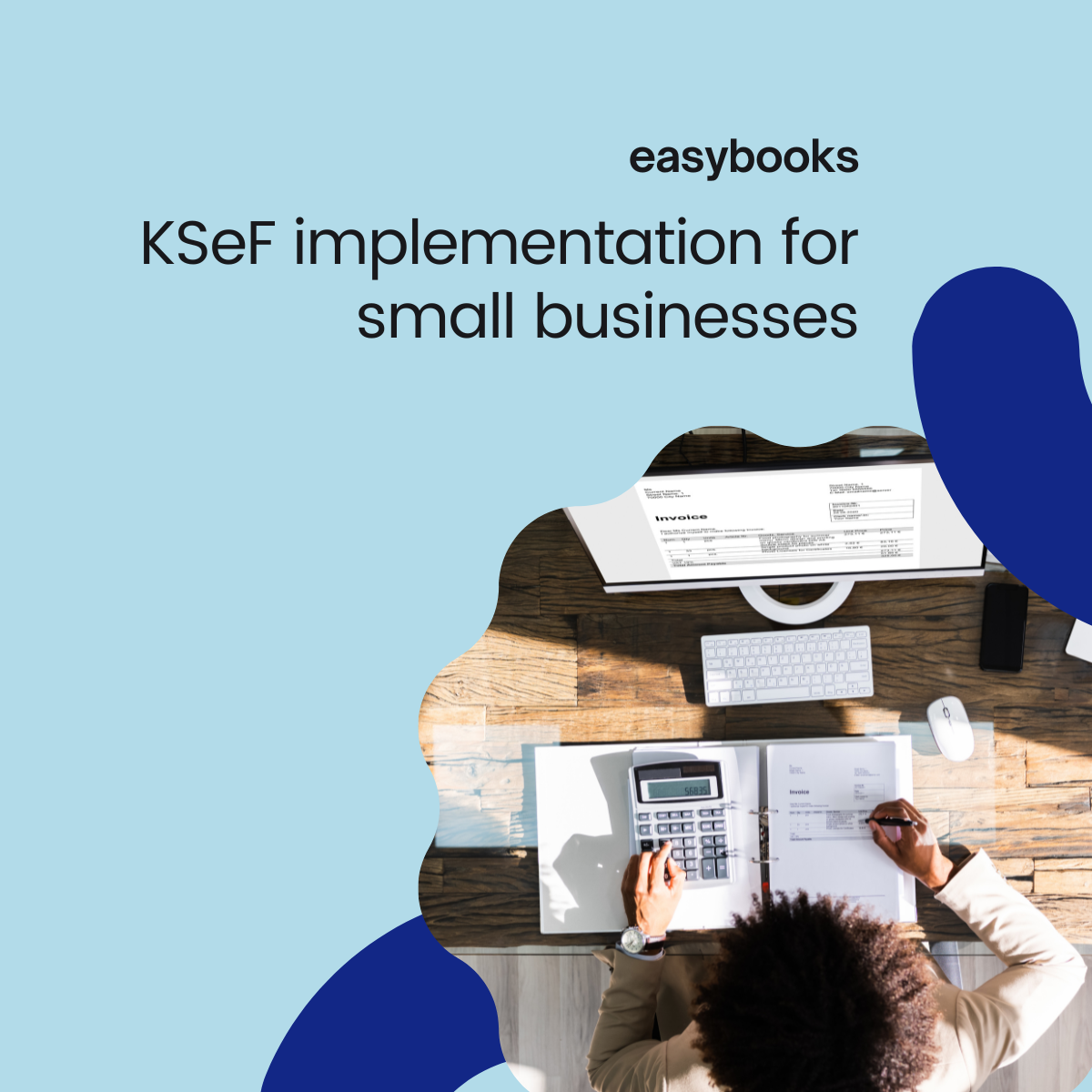KSeF implementation for small businesses in 2026
Starting in 2026, the National e-invoicing System (KSeF) will become mandatory for most Polish businesses, including sole traders and small enterprises. This marks a major shift in how invoices are issued, received and stored. It requires both technical and organizational adjustments, that some small businesses should be ready for in 2026.
KSeF implementation timeline
There will be three main stages of implementing KSeF:
- February 1, 2026 – for companies with an annual turnover of over 200 million PLN (based on 2024 data)
- April 1, 2026 – for all other VAT taxpayers, including most small businesses
- January 1, 2027 – final phase for digitally excluded microbusinesses (monthly turnover ≤ 10 000 PLN)
What is KSeF and how does it work?
KSeF (Krajowy System e-Faktur) is a government platform provided by the Ministry of Finance that allows:
- issuing structuring invoices (XML format),
- sending invoices through a centralized platform,
- secure, long-term archiving (10 years) of all documents.
An invoice will be considered officially issued only after it will be submitted to KSeF and assigned a unique identification number.
How to comply with KSeF?
Technical adaptation
Small businesses will need to:
- update or replace their invoicing or accounting software to be compatible with KSeF API 2.0,
- conduct testing (from September 2025),
- train staff or themselves in using the new invoicing method.
Organizational process changes
Entrepreneurs should:
- define who issues and apporoves invoices,
- decide who downloads incoming invoices from KSeF,
- revise the internal invoice circulation process, especially in cooperation with accounting office.
Registration in the system
Companies must authorize employees from accounting department/accounting office to use KSeF. Sole traders must log in via their trusted profile or e-ID, and then grant access to accountants.
Cost and available support
The implementation may involve expenses related to:
- software upgrades or new solutions,
- staff training,
- IT support and integration.
Ministry of Finance provides free tools such as KSeF web app. Business may also seek support from accounting office.
Benefits of KSeF
Although KSeF requires effort to implement, it offers significant long-term advantages:
- automation – no more manual entry thanks to XML-structured invoices,
- faster VAT refunds – the Tax Office gains instant access to documents,
- security – reduces human error and fraud risk,
- transparency – easier internal control over invoicing processes.
Transition period
In case of system failures or no internet connection, invoices can still be issued offline. Invoices for less than 450 PLN gross or if total sales ≤ 10 000 PLN/month, can be in paper form. There are no fines for mistakes, and no requirement to include the KSeF ID on bank transfers.
These rules apply intil 31st of December 2026.
Potential risks and challenges for small businesses
Small businesses may not have in-house IT support, therefore they might need an outside IT firm. Moreover, implementation of this system requires time-consuming software changes, testing, and training, therefore it has high costs. KSeF also requires stable Internet, hence the digital dependency.
How to prepare for changes?
- Check your current invoicing system – Is the system compatible or integrated with KSeF API 2.0?
- Test early – Participate in testing from September 2025.
- Train your team – Educate yourself and your staff on new procedures.
- Set up backup procedures – Define offline24 workflows and paper limits.
- Use free tools – Take advantage of the official application and documentation.
If you need additional support in accounting and hr&payroll services contact us!
Text based on: INFORLEX
Read our latest Posts
We love to talk to you!
Contact Us!
Explore EasyBooks for top notch accounting services. Reach out to us today for personalized assistance!




